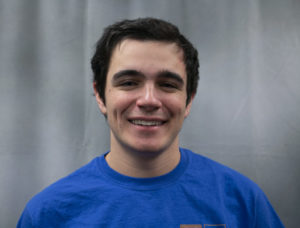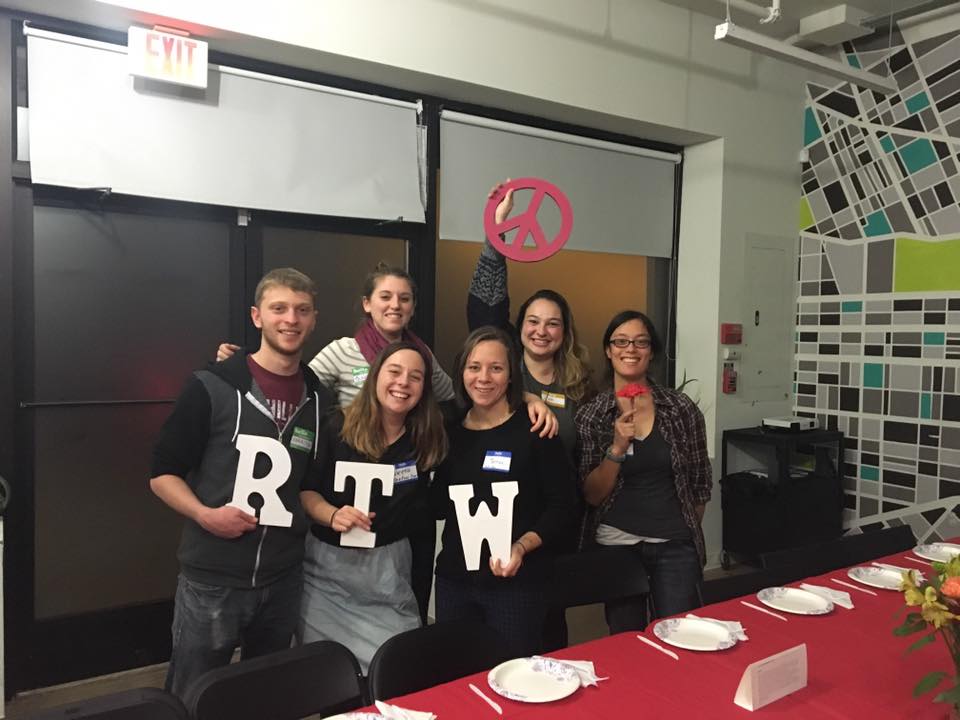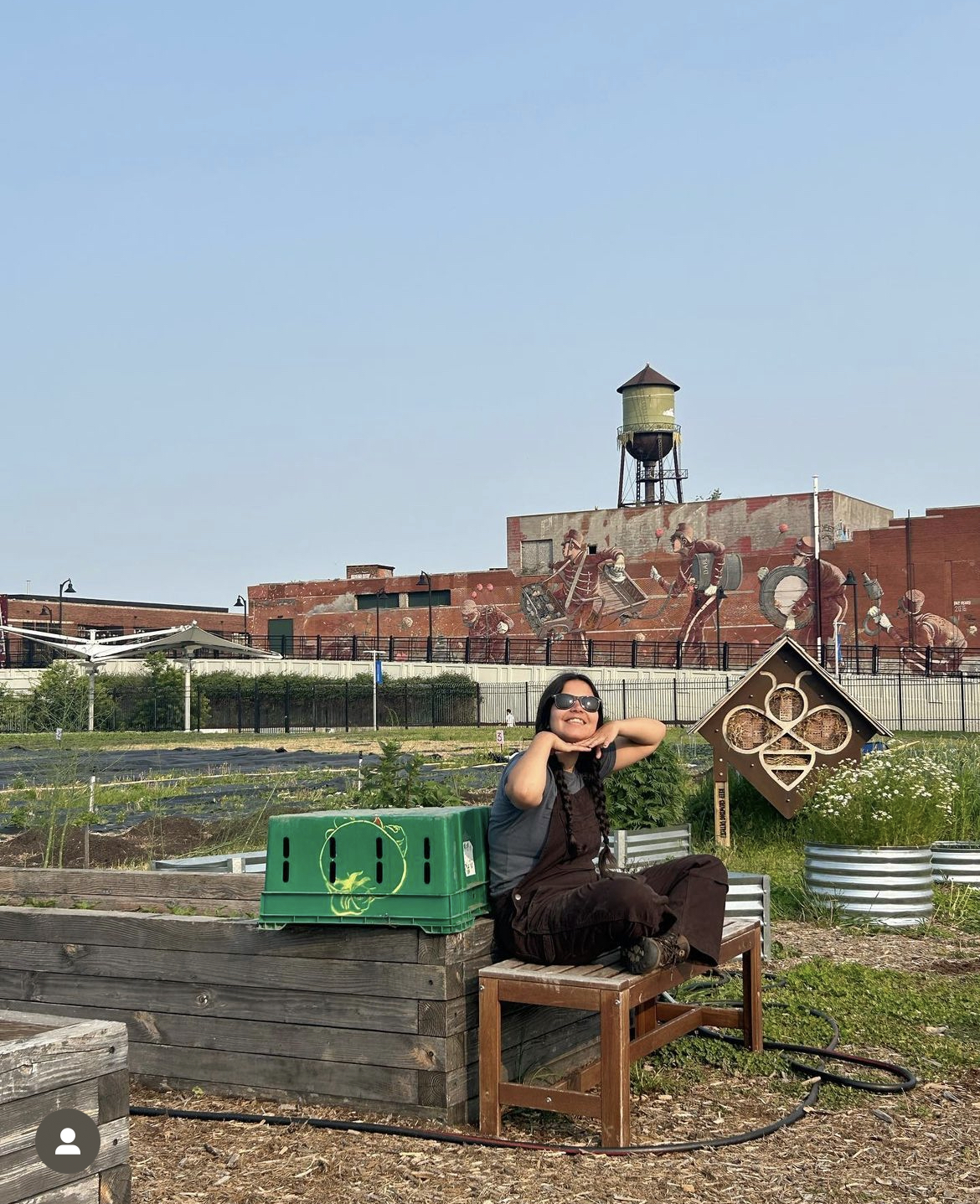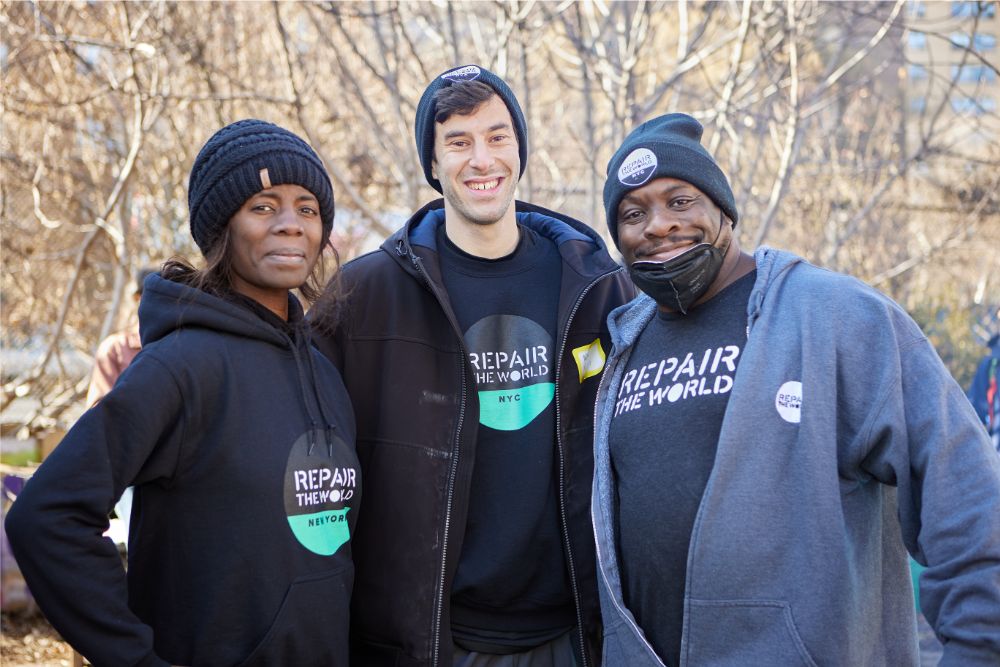A Fellowship Year Like No Other
This article originally appeared in the Baltimore Jewish Times on January 15th, 2021.
By Elam Boockvar-Klein

Elam Boockvar-Klein (he/him)
Whenever I tell someone I work for Repair the World, I chuckle to myself. I am a 22-year-old Baltimore transplant from New York City, fresh out of college, working to repair the world. It sounds a bit outrageous to say.
Repair the World is an organization that mobilizes Jews and their communities to take action to pursue a just world. We partner with nonprofits, identify volunteer needs and connect interested Jewish and Jewish-adjacent individuals to those organizations.
Repair the World in Hebrew is “tikkun olam.” One of the core tenets of Judaism, tikkun olam derives from the Kabbalistic, or Jewish spiritualistic, conception of the world’s origins. Rabbi Yitzchak Luria explained that the world began filled with infinite light, then receded into absolute darkness, after which a ray of light that held everything pierced through the darkness, exploding to create the world as we know it. We humans are left with the shattered sparks of that divine light, and must reconnect them in order to repair the world, ultimately liberating all of humankind.
Now that’s quite an ambitious task. But we aren’t each responsible for repairing the entire world. Rather, we must work to repair the parts of the world that touch us, the sparks that are proximate to our lived experience.
The fellowship model is unique in that we work for multiple organizations at once: Repair the World Baltimore, along with two nonprofit partners. I am placed with a couple of inspiring organizations building educational equity in West Baltimore, the Safe Alternative Foundation for Education in Franklin Square, and Promise Heights in Upton & Druid Heights. SAFE runs a middle school learning center, while Promise Heights is the lead organization for a group of community schools, connecting families to wraparound services. In a normal year, most of my work would be centered on volunteer recruitment. In this wildly abnormal year, I’ve instead turned into part-thought partner, outreach coordinator and program planner.
At all three organizations I work for, my coworkers have entrusted me to shape and execute visions of new, transformative programs. SAFE is in the process of opening a Workforce Development Center to train young adults in the field of construction, and most of my time has been spent exploring strategic partnerships and co-creating a program curriculum for the center. At Promise Heights, staff have identified stable, affordable housing as a profound need for many families in Upton & Druid Heights. As such, my supervisor and I are building a coalition of organizations dedicated to specifically addressing this need through both advocacy and, potentially, housing development. And at Repair the World Baltimore, I am building an intercampus cohort for the upcoming semester, bringing social justice-oriented students together across colleges to engage in direct service work on a monthly basis. With all three organizations, I am contributing to the creation of an initiative that does not already exist.
Bryan Stevenson, founder of the Equal Justice Initiative, never misses an opportunity to talk about the power of becoming proximate. Proximate to people suffering from injustice, proximate to people reshaping their neighborhoods and proximate to one’s own values. Only then, he posits, can change-making relationships be borne.
At Repair, we are placed in proximity to all of those things. But I’m not only proximate to the injustices present and the people working to address them in Baltimore. I’m also proximate to the intersections between organizations across Jewish and Black non-Jewish communities. It’s made me suited to be a connector of people and ideas, amplifying work that is often siloed and creating opportunities for new relationship-building to occur. That’s how the sparks of light become reconnected, and it’s how a movement is built.


